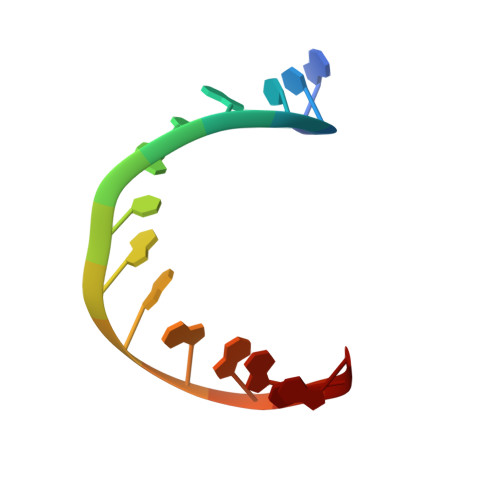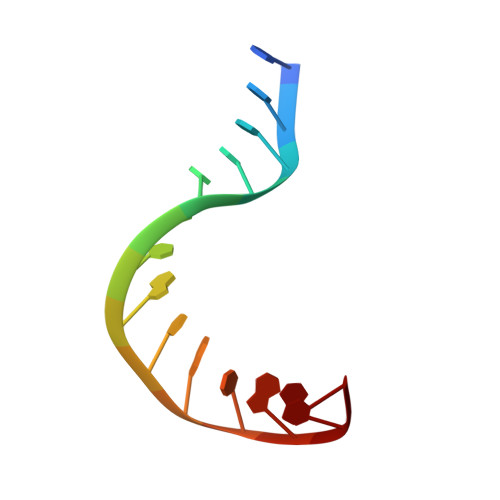TATA Element Recognition by the TATA Box-Binding Protein Has Been Conserved Throughout Evolution
Patikoglou, G.A., Kim, J.L., Sun, L., Yang, S.-H., Kodadek, T., Burley, S.K.(1999) Genes Dev 13: 3217
- PubMed: 10617571
- DOI: https://doi.org/10.1101/gad.13.24.3217
- Primary Citation of Related Structures:
1QN3, 1QN4, 1QN5, 1QN6, 1QN7, 1QN8, 1QN9, 1QNA, 1QNB, 1QNC, 1QNE - PubMed Abstract:
Cocrystal structures of wild-type TATA box-binding protein (TBP) recognizing 10 naturally occurring TATA elements have been determined at 2.3-1.8 A resolution, and compared with our 1.9 A resolution structure of TBP bound to the Adenovirus major late promoter (AdMLP) TATA box (5'-TATAAAAG-3'). Minor-groove recognition by the saddle-shaped protein induces the same conformational change in each of these oligonucleotides, despite variations in promoter sequence that reduce the efficiency of transcription initiation. Three molecular mechanisms explain assembly of diverse TBP-TATA element complexes. (1) T --> A and A --> T transversions leave the minor-groove face unchanged, permitting formation of TBP-DNA complexes on many A/T-rich core promoter sequences. (2) Cavities in the interface between TBP and the minor-groove face of the AdMLP TATA box accommodate the exocyclic NH(2) groups of G in a TACA box and in a TATAAG box. (3) Formation of a C:G Hoogsteen basepair in a TATAAAC box eliminates steric clashes that would be produced by the Watson-Crick base pair. We conclude that the structure of the TBP-TATA box complex found at the heart of the polymerase II (pol II) transcription machinery has remained constant over the course of evolution, despite variations in TBP and its DNA targets.
Organizational Affiliation:
Laboratories of Molecular Biophysics, Howard Hughes Medical Institute, The Rockefeller University, New York, New York 10021 USA.
















